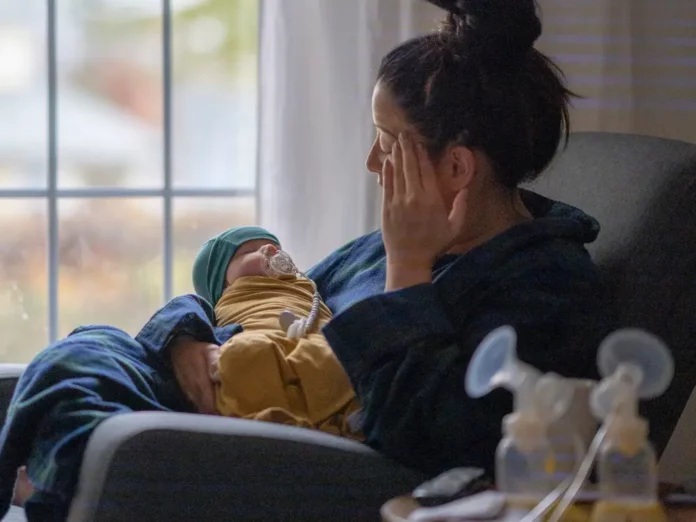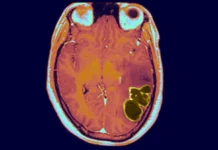In January of 2021, headlines across the United States were ablaze with the tragic story of Lindsay Clancy, a 32-year-old mother of three who was arrested and charged with the murder of her three children, aged five, four, and two. This devastating incident has ignited a conversation about postpartum psychosis, a rare but serious mental illness that affects some new mothers.
In the days and weeks following the Clancy case, mothers from all walks of life took to TikTok, a popular social media platform, to share their own stories of postpartum psychosis. The platform has become a forum for mothers to discuss the realities of motherhood, and the sharing of experiences related to mental health is not uncommon. However, the Clancy case seemed to prompt an outpouring of stories from mothers who had experienced postpartum psychosis themselves.
Postpartum psychosis is a severe mental illness that affects some women after childbirth. According to the American Psychological Association, it is estimated to occur in 1-2 per 1,000 births, although some studies suggest the rate may be higher. Symptoms of postpartum psychosis can include delusions, hallucinations, confusion, and rapid mood swings. In some cases, it can lead to self-harm or harm to others, as in the case of Lindsay Clancy.
Many of the mothers sharing their stories on TikTok described feeling isolated and ashamed after experiencing postpartum psychosis. They recounted feeling like they were the only ones going through the experience and not knowing where to turn for help. Some said they felt like they were going crazy and were afraid to seek help because of the stigma associated with mental illness.
One TikTok user, who goes by the username @mommasgonecity, shared her experience of postpartum psychosis after the birth of her second child. She said she experienced severe anxiety and began to have disturbing thoughts and hallucinations. She felt like she was losing her mind and was terrified of what might happen to her or her family.
Another user, @thefamilyjules, shared her experience of postpartum psychosis after the birth of her third child. She said she had never experienced any mental health issues before and was shocked by the intensity of the symptoms she experienced. She described feeling like she was in a dream world and couldn’t differentiate between reality and her thoughts.
The sharing of these stories has helped to break down some of the stigma surrounding postpartum psychosis and mental illness more broadly. Many of the mothers who shared their stories said they were grateful for the opportunity to connect with others who had gone through similar experiences and to feel less alone.
However, some mental health experts have cautioned that social media may not always be the best place to seek support for mental health issues. While the sharing of experiences can be helpful, it is important to seek professional help for mental health issues. This can include talking to a doctor or mental health professional, joining a support group, or seeking treatment through medication or therapy.
Dr. Alexandra Sacks, a reproductive psychiatrist and author of the book “What No One Tells You: A Guide to Your Emotions from Pregnancy to Motherhood,” told TODAY Parents that while social media can be helpful for finding support and community, it is important to seek professional help for postpartum psychosis.
“It’s important to know that social media can’t replace the value of treatment with a professional who can diagnose and treat postpartum mood and anxiety disorders,” Sacks said. “Postpartum psychosis is a medical emergency and should be treated as such.”
In addition to seeking professional help, there are also steps that new mothers can take to reduce their risk of developing postpartum psychosis. According to the American Psychological Association, these can include getting enough rest, eating a healthy diet, staying hydrated, and asking for help from family and friends. It is also important to communicate openly with healthcare providers about any concerns or symptoms experienced after childbirth.
The conversation around postpartum psychosis has also highlighted the need for greater support for new mothers. The transition to motherhood can be a challenging and isolating experience for many women, and the lack of support can exacerbate the risk of developing mental health issues. Some mothers on TikTok have called for more resources and support for new mothers, including increased access to mental health care and more postpartum support groups.
In conclusion, the sharing of experiences on TikTok has helped to break down some of the stigma surrounding postpartum psychosis and mental illness in general. While social media can be a helpful place to find support and connect with others who have gone through similar experiences, it is important to seek professional help for mental health issues. The Clancy case has also highlighted the need for greater support and resources for new mothers to reduce the risk of developing mental health issues and to ensure that they have the support they need during this challenging transition. As a society, we need to continue the conversation about postpartum psychosis and work towards providing better support and resources for new mothers.








